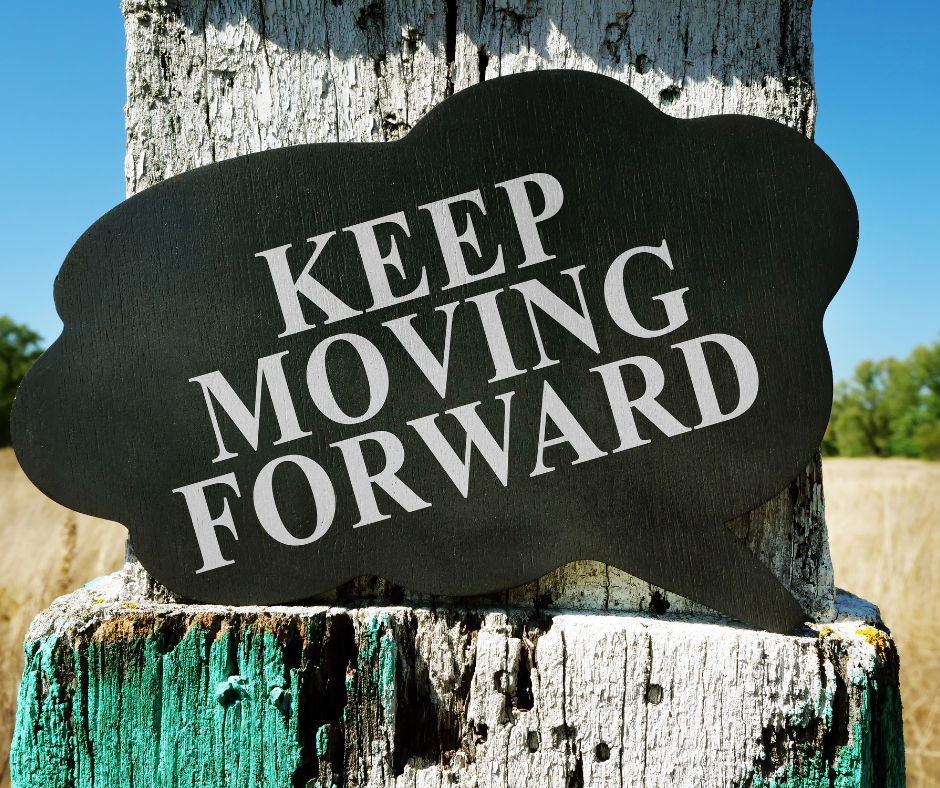A Letter of Truth, Strength, and Liberation Dear Single Mom, This is for you, the woman who wakes before the sun and sleeps long after everyone else has closed their eyes. This is for you, the one who wipes tears, ties shoelaces, packs lunches, pays bills, solves problems, and still manages to show up with a brave face. Society often tells you that you must be everything at once, but that message is unfair, heavy, and deeply unrealistic. You are strong, but strength does not mean silence. You are capable, but capability does not mean isolation. You are resilient, but resilience does not mean you must suffer alone. The narrative that single mothers must “do it all” is not empowerment, it is exhaustion dressed up as praise. And it is time to challenge that story. You Are Not a Burden, You Are a Builder Every day you are building lives, character, dreams, and stability for your children. That is not small work, it is sacred work. Yet the world often overlooks your effort, minimizing your struggles while expecting perfection from you. That is not fair, and you deserve better. Being a single mom does not mean you are broken, failed, or incomplete. It means you stepped up when circumstances changed. You chose responsibility over escape. You chose love over fear. That choice alone makes you extraordinary. The Danger of “Doing It All” Alone When you try to carry everything by yourself, you risk burnout, anxiety, and emotional depletion. You may feel guilty asking for help, but asking for support is not weakness, it is wisdom. No one is meant to survive life alone, not even superheroes. You do not need to prove your worth through suffering. You do not need to collapse in silence to be respected. You are allowed to rest, to ask, to share, to cry, to speak up, and to be supported. Your Children Need a Healthy You, Not a Perfect You Your children do not need a flawless mother, they need a present, peaceful, and emotionally well mother. When you allow yourself to receive help, you teach them an important life lesson, that community matters, vulnerability is human, and love is not a solo journey. A calm mother raises calmer children. A supported mother raises secure children. A mother who values herself raises children who value themselves. You Are More Than Survival, You Are Meant for Growth Your story does not end with struggle. It evolves into growth, opportunity, and purpose. You are allowed to dream again, to build a career, to pursue education, to nurture friendships, and to invest in your own happiness. Your identity is not limited to motherhood. You are also a woman with talents, passions, ideas, and a future that deserves attention. A Call to Action for Every Single Mom Reading This Stop carrying guilt that is not yours. Stop shrinking your voice. Stop believing that asking for help makes you less. Start seeking support, building community, and protecting your mental health. Reach out to another single mom, join support groups, talk to a counselor, lean on trusted family members, and most importantly, be kinder to yourself. Your life is not a punishment, it is a mission. Your challenges are not your shame, they are your testimony. And your future is not defined by your past, it is shaped by your courage today.
From Loss to Leadership: Voice of Widows and The Furniture Times Unite to Redefine CSR with Purpose, Power, and Lasting Impact
Some partnerships are strategic. Some are symbolic. And then there are partnerships that change lives.The collaboration between Voice of Widows – Turning Sorrows into Strength and The Furniture Times belongs to the rare third category. This is not just a Corporate Social Responsibility feature. This is a public commitment to humanity, dignity, and long-term empowerment. It is a declaration that business influence, when guided by conscience, can rewrite destinies. Voice of Widows is not a campaign. It is not charity. It is a movement born from pain and rebuilt through purpose.Across societies, widows are often left behind in silence, burdened not only by grief but by social neglect, economic vulnerability, and invisibility. Voice of Widows exists to confront that reality head-on. It transforms loss into leadership by creating pathways where widows are not pitied, but empowered. Where they are not dependent, but independent. Where their identity is not defined by what they lost, but by what they can build. The Furniture Times, as a leading voice in industry and innovation, choosing to feature Voice of Widows as a CSR partner is both powerful and timely.It sends a clear message that responsibility does not end at profit margins. It begins with people. By amplifying this initiative, The Furniture Times has used its platform not just to inform, but to inspire action, awareness, and accountability across industries. At the heart of Voice of Widows is a simple but radical belief: empowerment begins with opportunity, not sympathy.Rather than offering short-term relief, the initiative focuses on sustainable change. Through structured skill development programs, vocational training, entrepreneurship guidance, and livelihood creation, widows are equipped to rebuild their lives with confidence and economic stability. This approach ensures dignity is preserved, self-worth is restored, and futures are secured. Training without mentorship fails. Support without access collapses. Voice of Widows understands this deeply.That is why the initiative integrates mentorship, market exposure, and income-generating pathways into its model. Women are not only trained but guided. Not only supported but trusted. This ecosystem enables widows to transition from survival to self-reliance, from uncertainty to ownership. What makes this initiative exceptional is its refusal to let silence continue.Voice of Widows creates space for unheard voices to be acknowledged. It restores agency where society has imposed limitations. It nurtures resilience where vulnerability once lived. This is empowerment that is practical, emotional, and transformative. The Furniture Times featuring this initiative is more than recognition. It is reinforcement.It reinforces the idea that media platforms have moral power. That industries can influence social narratives. That CSR, when done right, is not about optics but outcomes. This collaboration stands as an example to brands, corporations, and institutions that real impact comes from aligning visibility with values. The urgency of this work cannot be overstated.Every day, countless widows face economic hardship, social exclusion, and limited opportunities. Delaying action means delaying dignity. Ignoring the issue means enabling inequality. Voice of Widows responds to this urgency with structure, vision, and measurable impact, proving that transformation is possible when intention meets execution. This partnership is a thank you, but it is also a call to action.A call to businesses to rethink CSR as a responsibility, not a requirement. A call to leaders to invest in long-term empowerment, not temporary solutions. A call to society to listen, support, and stand beside women who are ready to rise, if only given the chance. Voice of Widows is turning sorrows into strength. The Furniture Times has chosen to amplify that strength. Together, they are shaping a future where loss does not define a woman’s destiny, and empowerment is not an exception, but a standard. This is how change looks when purpose leads. This is how voices become movements. This is how responsibility becomes legacy.
The Silent Question: Why Do Most Widows Never Remarry? A Powerful Truth Society Must Finally Hear
There is a question that lingers quietly inside countless lives, a question that is rarely spoken aloud but deeply felt: Why do most widows never remarry?Behind the statistics are women whose lives were split into “before” and “after.” Their love stories did not fade away. They were torn apart. And when the world expected them to move on, many chose instead to rebuild not by replacing, but by rising. This is not a story about loneliness.It is a story about strength, memory, identity, and the invisible weight that widows silently carry every single day. The Unseen Grief That Never Fully Ends When a spouse dies, the world does not simply become quieter.It becomes unfamiliar. Routines collapse. Shared laughter becomes a memory. The future that was once planned together suddenly disappears. For many widows, love does not die with a person. It remains living inside them, shaping their choices forever. Remarriage, then, is not simply about finding a new partner.It is about standing face-to-face with the lingering echo of a love story that once defined everything. And for many, that love was enough. A New Identity Is Born From Loss Widows often discover a strength they never expected. They become decision makers, protectors, providers, and healers. Their independence is not a rebellion against love. It is survival. They learn to: manage life alone protect their children carry emotional scars quietly rebuild their sense of self By the time society begins questioning why they have not remarried, many widows have already formed a powerful identity rooted in resilience. They are no longer seeking to be completed. They already are. The Emotional Barrier Few Understand To love again can mean reopening a heart that has already been shattered once.For many widows, the thought of risking that level of loss again feels unimaginable. The fear is real.The grief is real.The loyalty to a memory is real. And sometimes, the heart simply decides once was enough. Social Pressure Makes It Even Harder Widows carry expectations placed upon them by society, culture, family, and community. Judgment whispers around them: Why are you still single?Are you being fair to your children?Have you moved on yet? These questions wound.They imply a deadline for grief, as though healing must follow a schedule. But grief follows no timeline.And love cannot be replaced like an object. A Love That Becomes Eternal Many widows do not remarry because they do not feel single. They still speak to their late spouse in quiet moments.They still sleep on one side of the bed.They still remember shared birthdays, first meetings, and last words. This is not weakness.It is loyalty born from genuine love. Some love stories do not end.They simply change shape. Practical Realities Also Matter Many widows also face: legal complications inheritance concerns financial responsibilities blended family challenges emotional needs of children Remarriage is not a simple decision. It affects lives beyond their own. And Then There Is Strength Widows learn to rebuild.They learn to breathe again.They learn to carry pain with grace. They become emotionally powerful.Independent.Grounded. And sometimes, they discover they no longer need romantic partnership to feel whole. This Is A Call To Compassion Before anyone asks a widow why she has not remarried, they should instead ask: How can I support you?How have you been coping?What does healing look like for you? Because the truth is simple: Most widows do not refuse remarriage out of fear of love.They simply already experienced a love that shaped their soul. And for many, that love will always be enough. A Final Thought For Every Reader Let this message awaken empathy.Let it remind us that grief is sacred.Let it teach us that women who walk through widowhood do not need pressure to begin again. They deserve respect for surviving.They deserve honor for enduring.They deserve peace — on their own terms. And if a widow chooses to love again, it is beautiful.If she does not, it is equally powerful. Because healing is personal.And love never truly leaves.
Shattering the Silence: The Unspoken Stigma Against Widows And Why It Must End Now
There is a powerful truth many societies still refuse to face: when a woman loses her husband, she is often forced to lose her identity too. The world may speak of compassion, but too often widows are quietly pushed to the margins—judged, pitied, excluded, and blamed for a tragedy they never chose. This stigma is ancient, but it lives loudly in the present. And until we confront it, millions of women will continue to suffer in silence. Widowhood is not only loss. For many women, it becomes a lifetime sentence of isolation. They are labeled instead of understood. They are watched instead of supported. They are questioned instead of comforted. In some communities, widows are told to dim their light, limit their happiness, and live in the shadow of grief indefinitely—as if joy becomes forbidden once their marital status changes. This is not culture. This is injustice. Where Does This Stigma Come From? The stigma against widows is rooted in fear, control, and harmful tradition. In many parts of the world, a woman’s worth has long been tied to marriage. When her husband dies, society treats her as incomplete, unsafe, or even unlucky. Some widows are denied inheritance. Some are stripped of dignity and choice. Some are silently punished for simply surviving. Widowhood should never equal guilt. Yet many women are made to feel responsible for what happened. And the tragedy deepens when children are involved. A grieving mother is expected to be strong, stable, and silent—all at the same time. But who supports her? The Emotional Cost No One Sees Widows experience a double grief: the loss of their partner and the loss of their place in society. Friends disappear. Invitations stop. People whisper. Judgment replaces compassion. And slowly, confidence fades. Imagine walking through life with your identity constantly questioned. Imagine being told you should “know your limits.” Imagine being treated as fragile, yet expected never to fall apart. This is the reality for too many widows. We Must Change This Now Widows do not need pity. They need power, dignity, and opportunity. They deserve: Respect. Inclusion. Financial independence. Emotional safety. Community support. Freedom to rebuild. Every widow is still a woman with dreams, skills, passion, and purpose. Her story did not end. It transformed. And we, as a society, must transform with it. It Starts With Us Speak up when you see discrimination. Include widows in conversations, celebrations, and decisions. Empower them with education, employment, and legal protection. Treat widowhood as a life transition — not a life sentence. When we uplift widows, we uplift families. When we restore their dignity, we restore humanity. Changing mindset is not optional. It is urgent. To Every Widow Reading This You are not defined by loss. You are not a burden. You are not invisible. Your strength is real. Your story matters. Your future is still bright. And you deserve a world that stands beside you — not against you. The Movement Begins With Awareness And Action Let this be the beginning of a louder conversation. A conversation that challenges stereotypes. A conversation that protects dignity. A conversation that finally breaks the silence. Because the stigma against widows should never have existed — and together, we can end it.
The Powerful Benefits Of Being Ambitious And Why Your Life Depends On It
Ambition is not a personality trait. It is a decision. A deep inner agreement with yourself that your life will not be small, silent, or settled for less than what you are capable of becoming. Ambition is the fire that separates those who wait from those who build, those who dream from those who execute, and those who survive from those who lead. In a world where comfort is marketed as success and mediocrity is normalized, being ambitious is often misunderstood. But the truth is simple and urgent. Without ambition, growth stops. Progress slows. Potential dies quietly. If you want your life, career, business, or legacy to matter, ambition is not optional. It is essential. This is not motivation for a moment. This is a wake-up call. Ambition Gives Direction to Your Life Without ambition, life becomes reactive. You respond to situations instead of designing outcomes. Ambition gives your life a clear direction. It forces you to ask important questions. Where am I going. Who am I becoming. What am I building that will outlive me. Ambitious people do not wake up randomly. They wake up with intention. They make choices aligned with long-term goals instead of short-term comfort. Direction creates discipline. Discipline creates results. When ambition is missing, confusion takes over. When ambition is present, clarity follows. Ambition Unlocks Hidden Potential Most people live far below their actual capabilities. Not because they lack talent, intelligence, or resources, but because they lack ambition. Ambition pulls hidden strength out of you. It forces you to stretch beyond fear, beyond excuses, beyond self-doubt. You do not discover your limits by staying comfortable. You discover them by chasing something bigger than who you are today. Ambition demands growth. Growth demands effort. Effort transforms potential into performance. Ambition Builds Mental Strength Ambition trains your mind to endure pressure, rejection, failure, and uncertainty. When you are ambitious, quitting is no longer an option. You learn how to adapt, recalibrate, and move forward even when things fall apart. This mental resilience becomes your greatest asset. It allows you to stay focused when others panic. It allows you to rise when others retreat. It allows you to lead when others follow. Ambition does not make life easier. It makes you stronger. Ambition Creates Financial Independence Let us be honest. Financial struggle is not romantic. It is stressful, limiting, and exhausting. Ambition fuels the desire to build skills, create opportunities, and pursue income growth beyond survival. Ambitious individuals invest in learning, take calculated risks, and build multiple streams of value. They do not wait for permission to earn more. They position themselves for it. Money alone is not success, but lack of ambition almost guarantees financial limitation. Ambition Separates Leaders from Followers Leaders are not born. They are driven. Ambition pushes people to take responsibility instead of blaming circumstances. It pushes them to solve problems instead of complaining about them. When ambition meets purpose, leadership emerges. Not loud leadership. Real leadership. The kind that inspires action, trust, and transformation. Every impactful movement, company, and vision in history was built by ambitious individuals who refused to stay silent or small. Ambition Keeps You Relevant in a Fast-Changing World The world is evolving faster than ever. Skills expire. Industries change. Technology replaces routine work. Those without ambition fall behind quickly. Ambitious people continuously upgrade themselves. They learn. They adapt. They stay curious and competitive. They do not rely on past achievements to secure future relevance. Ambition is the engine of lifelong learning. Ambition Turns Dreams into Deadlines Dreams without ambition remain fantasies. Ambition gives deadlines to dreams. It creates urgency. It refuses procrastination. It replaces someday with now. Ambitious people understand time is non-refundable. They act before motivation feels perfect. They move even when confidence is incomplete. Ambition respects time. That is why it wins. Ambition Inspires Others Without Permission One ambitious individual can change the energy of an entire environment. When people see someone chasing growth relentlessly, it challenges their excuses. It raises standards. It sparks belief. Ambition is contagious. It gives silent permission to others to dream bigger and act bolder. You do not need to announce ambition. Results announce it for you. The Danger of Living Without Ambition The absence of ambition does not look dramatic. It looks like settling. Like postponing dreams. Like accepting less while convincing yourself it is enough. Years pass quietly. Regret grows silently. And one day, the realization hits hard. I could have done more. I should have tried. Ambition prevents regret. It ensures that even if you fail, you fail knowing you gave everything. Choose Ambition Before It Is Too Late Ambition is not arrogance. It is self-respect. It is the refusal to betray your potential. You do not need approval to be ambitious. You do not need perfect conditions. You need a decision. Decide that your life will expand. Decide that your work will matter. Decide that comfort will not control you. Because the cost of ambition is effort. But the cost of no ambition is a lifetime of what-ifs. The choice is urgent. The time is now.
The Future of Work: How AI Is Revolutionizing the Way We Work
In the past decade, the workplace has undergone seismic shifts. Technology has always been a driver of change, but Artificial Intelligence (AI) is redefining the very nature of work. From automation to data-driven decision-making, AI is no longer a futuristic concept; it is a present-day reality transforming careers, businesses, and industries globally. Whether you are a business leader, an employee, or an entrepreneur, understanding how AI is reshaping work is no longer optional—it is essential for survival and growth. AI in the Workplace: More Than Automation Many people still think of AI as just robots replacing human jobs. While automation is a part of it, AI goes far beyond simple task execution. It enhances human intelligence, improves efficiency, and empowers decision-making. Smart Data Analysis: AI algorithms can analyze massive datasets within seconds, providing insights that would take humans weeks or months to uncover. Businesses can now make faster, more informed decisions, reducing risk and increasing profitability. Personalized Workflows: AI-driven tools can customize workflows for individual employees, increasing productivity and minimizing burnout. Imagine a system that learns how you work best and optimizes your day automatically. Predictive Insights: From forecasting market trends to anticipating customer needs, AI allows businesses to act proactively rather than reactively. This predictive power can be the difference between leading the market or falling behind. Emotional Intelligence Meets AI The fear that AI will replace humans entirely is understandable, but the reality is different. AI augments human capabilities, allowing people to focus on strategic, creative, and emotional aspects of work—areas where humans excel. Customer Experience: AI chatbots handle routine queries, freeing human teams to tackle complex problems and provide a personalized touch. Employee Engagement: AI tools can monitor work patterns, detect stress levels, and provide actionable recommendations to boost well-being and productivity. Collaboration: AI platforms enable seamless collaboration across global teams, breaking down communication barriers and making remote work more effective than ever. The synergy between human creativity and AI precision is where the future of work truly lies. Urgent Action for Businesses and Professionals Ignoring AI is no longer an option. The question is not if AI will impact your work, but how prepared you are to adapt. For Businesses: Integrate AI tools to streamline operations, enhance decision-making, and improve customer satisfaction. Companies that adopt AI early gain a competitive edge. For Professionals: Upskill and reskill. Learn AI literacy, data analytics, and machine learning basics. The professionals who thrive in the AI era will be those who collaborate with AI, not compete against it. For Entrepreneurs: Identify AI-driven opportunities to innovate. Whether it’s launching smarter products or using AI to understand customer behavior, early adoption can set you apart. The window to act is now. Businesses and individuals that hesitate risk falling behind as AI adoption accelerates across industries. The Global Impact of AI on Work AI is not just transforming individual businesses; it is reshaping entire economies. According to research, AI could contribute up to $15 trillion to the global economy by 2030. Countries and organizations investing in AI are seeing faster growth, higher efficiency, and improved innovation. But with opportunity comes responsibility. Ethical use of AI, ensuring data privacy, and mitigating bias are critical considerations. AI is a tool, and how we wield it determines whether it empowers humanity or disrupts it negatively. Conclusion: Embrace AI or Be Left Behind The future of work is intelligent, efficient, and human-centric. AI is not a replacement for human potential—it is a powerful partner that can unlock new levels of productivity, creativity, and opportunity. Take action today: learn AI tools, adopt AI-driven strategies in your business, and embrace continuous learning. The world is changing fast, and those who wait too long will be left behind. AI is not coming—it is already here. The question is, will you lead the change or watch from the sidelines?
Breaking Free: How Widows Can Overcome Social Stigma and Reclaim Their Lives
Breaking Free: How Widows Can Overcome Social Stigma and Reclaim Their Lives Widowhood is often portrayed as a life sentence of grief, isolation, and judgment. Society may impose silent rules on how a widow should behave, dress, or even think. These unspoken expectations create barriers, stigmas, and a sense of being “less than” in the eyes of others. But here’s the truth: your life does not end with loss—your journey is just beginning. The emotional weight of losing a spouse is immense. It comes with grief, anxiety, loneliness, and societal scrutiny. Many widows internalize these pressures, believing they must shrink themselves to fit society’s idea of “acceptable behavior.” But staying silent or passive only prolongs suffering. It’s time to act. It’s time to reclaim your voice, your identity, and your life. Understand the Stigma and Why It Exists Social stigma against widows often stems from outdated cultural beliefs: Blame and judgment: Some communities unfairly assign guilt or responsibility to the widow. Isolation: Widows are often excluded from social events or community activities. Economic disadvantage: Loss of a spouse can also mean a loss of financial security, increasing dependency and vulnerability. Recognizing these barriers is the first step toward breaking them. Once you understand the stigma, you gain power over it, rather than letting it control your life. Actionable Steps to Overcome Stigma 1. Rebuild Your Emotional Strength Start with self-compassion. Grief is natural, and healing takes time. Journaling your feelings, attending therapy, or joining support groups can help you process emotions and build resilience. 2. Educate Yourself and Others Knowledge is power. Learn about your rights, legal protections, and community resources. Educate those around you—family, friends, or colleagues—about what support a widow truly needs. Awareness reduces judgment. 3. Develop Financial Independence Economic security is a cornerstone of confidence. Explore opportunities for employment, entrepreneurship, or skill development. Financial independence is not just about money; it’s a declaration of self-worth. 4. Redefine Your Identity Widowhood is a part of your story, not the entirety of it. Engage in hobbies, pursue passions, and reconnect with your dreams. Your life can be vibrant, fulfilling, and meaningful—beyond societal labels. 5. Find Your Support Network Community is crucial. Surround yourself with people who respect and uplift you. Widows’ associations, online groups, and mentoring programs can provide encouragement and shared experiences. 6. Challenge Social Norms Speak out against discriminatory practices. Every small action counts—from asserting your choices to mentoring other widows. By challenging stigma publicly, you create a ripple effect that empowers others too. Urgency: Why Acting Now Matters The longer the stigma persists unchallenged, the more it erodes confidence and well-being. Every day spent in silence allows outdated beliefs to gain ground. Taking decisive action today can transform grief into growth, isolation into community, and stigma into empowerment. Inspirational Perspective Remember, your journey is not about fitting into society’s mold—it’s about reshaping it. Every step toward self-love, independence, and visibility is a victory. You are not defined by loss but by your courage to rise, speak, and reclaim your life. Call to Action Do not wait for society to accept you. Accept yourself first. Start today. Join a support network, take a course, explore your passions, or share your story. Your strength can inspire change not just in your life, but in the lives of countless other widows silently battling stigma.
Healing the Heart: How Self-Compassion Empowers Widows to Overcome Rejection and Reclaim Their Lives
Introduction: The Silent Struggle of Widows Losing a life partner is one of the most profound emotional challenges anyone can face. For many widows, the grief is compounded by social pressures, judgment, and even rejection—from family, society, or potential relationships. This emotional weight can feel unbearable, leaving women questioning their self-worth. But there is a powerful tool that widows often overlook: self-compassion. Self-compassion is more than self-kindness—it is a deliberate practice of treating yourself with care, understanding, and patience during moments of pain or failure. For widows, cultivating self-compassion can transform rejection into growth, loneliness into resilience, and grief into a path toward empowerment. 1. Understanding Rejection and Its Emotional Impact Rejection is not only painful; it can shake the foundation of identity, especially for widows who have already experienced profound loss. Feeling rejected may trigger: Self-doubt: questioning one’s value and worthiness Isolation: withdrawing from social interactions to avoid judgment Emotional stagnation: difficulty moving forward due to persistent sadness or guilt Without intentional coping strategies, these feelings can spiral into depression or prolonged grief. Recognizing the emotional toll is the first step in reclaiming personal power. 2. The Role of Self-Compassion in Healing Self-compassion allows widows to counteract the harsh self-criticism that often accompanies rejection. According to research by Dr. Kristin Neff, self-compassion consists of three key components: Self-kindness: Treating yourself as you would a close friend in times of pain Common humanity: Recognizing that suffering is a shared human experience Mindfulness: Observing emotions without judgment or over-identification By practicing self-compassion, widows can: Reduce the intensity of negative emotions Build resilience against future rejection Foster emotional healing and self-acceptance 3. Actionable Steps to Cultivate Self-Compassion Widows can actively use self-compassion to navigate rejection with these practical steps: Step 1: Acknowledge Your PainAllow yourself to feel hurt without judgment. Journaling emotions or speaking with a trusted friend or counselor can help process these feelings. Step 2: Reframe Rejection as GrowthInstead of internalizing rejection as personal failure, see it as an opportunity to learn, grow, and redefine boundaries. Ask yourself: “What can this experience teach me about my needs and values?” Step 3: Practice Daily AffirmationsSpeak kind and nurturing words to yourself every day. Examples include: “I am worthy of love and respect.” “It is okay to take my time healing.” Step 4: Engage in Supportive CommunitiesJoining widow support groups, online forums, or workshops can provide a sense of belonging and validation, reinforcing the principle of common humanity. Step 5: Prioritize Self-CareSelf-compassion is reinforced through self-care: proper rest, nutrition, gentle exercise, mindfulness, and hobbies that bring joy and fulfillment. 4. Overcoming Social Stigma Through Empowerment Widows often face societal judgment or unsolicited advice, which can exacerbate feelings of rejection. Self-compassion provides the inner strength to: Resist harmful comparisons with others Set healthy boundaries with family or peers Build confidence in navigating new social or romantic relationships By nurturing self-love, widows not only manage rejection but also emerge more empowered, resilient, and emotionally independent. 5. The Long-Term Benefits of Self-Compassion for Widows Embracing self-compassion is not a quick fix—it is a lifelong practice that gradually transforms the way widows experience life after loss: Emotional resilience: Greater ability to handle rejection, criticism, or loneliness Increased self-esteem: Strengthened self-worth independent of external validation Healthier relationships: Choosing connections that honor and respect personal boundaries Personal growth: Turning grief and rejection into lessons of courage and empowerment Conclusion: Reclaim Your Life Through Self-Compassion Rejection is painful, but it does not define your worth. For widows, practicing self-compassion can be a life-changing approach to emotional healing and personal empowerment. By acknowledging your pain, embracing your humanity, and treating yourself with kindness, you can navigate rejection with grace and strength. Start today. Begin your journey toward self-compassion, and transform rejection into resilience, heartbreak into growth, and loneliness into self-empowerment. Your life, your worth, and your happiness are waiting.
Rising After the Fall: How to Reduce the Sting of Rejection and Keep Moving Forward with Power
Rejection can feel like a full-body blow. It interrupts your momentum, drains your confidence, and makes you question your worth. Yet, every successful person you admire has walked through the same fire. What separates those who rise from those who collapse is not luck but strategy, inner strength, and the courage to take the next step even when everything feels heavy. The truth is simple: Rejection is not a verdict. It is a redirection. And what you do right now determines whether this moment breaks you or builds you. Understanding the Sting Before You Heal It Rejection hurts because it attacks the deepest parts of your identity. You may feel inadequate, disappointed, frustrated, or even ashamed. These emotions are real, but they are not final.The pain doesn’t come from the event itself but from the meaning you attach to it. Instead of asking, Why wasn’t I enough?Shift the question to:What can I learn, refine, and return stronger with? This shift alone moves you from emotional reaction to empowered action. Rejection Is Data, Not Definition Every no contains insight.Every closed door teaches you something.Every setback reveals your next step. Your task is to decode rejection rather than internalize it. Ask yourself:What specifically can I improve?Where can I sharpen my skills?What needs to change—not in who I am, but in how I show up? This transforms rejection from a wound into a roadmap. Detach Your Worth from the Outcome One of the most powerful steps in reducing the sting is learning to separate your identity from the result. A failed relationship does not mean you are unlovable.A declined application does not mean you are incapable.A rejected proposal does not mean your ideas lack value. Your worth is not up for negotiation. Only your strategy is. When you anchor your identity internally—not in other people’s responses—you become unstoppable. Allow Yourself to Feel, Then Choose to Rise Suppressing emotions never heals them.Let yourself feel the disappointment, but don’t let it imprison you. Once the emotional wave passes, make a conscious decision:I will rise. I will adjust. I will take the next step forward. Healing begins when you accept the pain but refuse to stay in it. Turn Rejection Into Momentum Rejection becomes powerful when you use it to fuel your next move.Here’s how: 1. Reflect honestlyIdentify what worked, what didn’t, and what you can refine. 2. Reorganize your approachShift your strategy, communication, or timing. 3. Rebuild your energyStrength returns when self-belief returns. 4. Recommit to your visionA single rejection does not dismantle your purpose. Every champion rises not because the path is smooth, but because the mission is too important to abandon. Surround Yourself With People Who Elevate You Isolation amplifies pain.Connection reduces it. Seek mentors, friends, communities, or groups that reinforce your growth.Share your thoughts with people who reflect courage back to you.This doesn’t just strengthen your emotions—it sharpens your perspective. Your Next Chapter Is Waiting for You Rejection isn’t the end.It’s the moment before everything real begins. There are opportunities you haven’t seen yet.People who will value what others overlooked.Paths waiting for your courage.Doors that will open only because one door closed. You are not behind.You are not defeated.You are being prepared. Take the next step boldly.Your story isn’t stopping here.It is just starting to rise.










